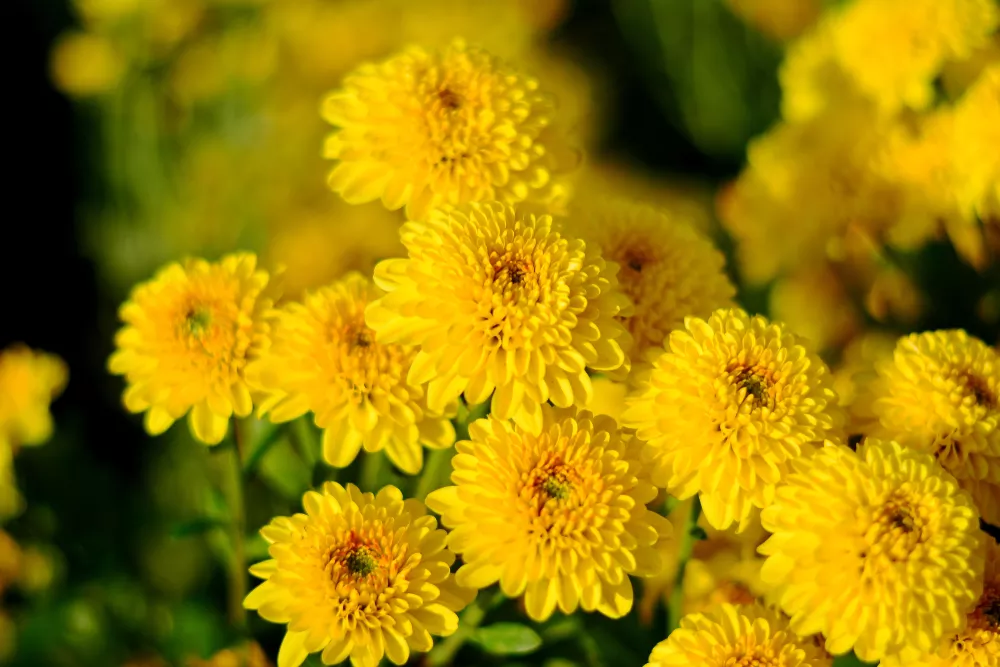Introduction
Chrysanthellum is a medicinal plant that has been used for thousands of years in traditional Chinese and African medicine. Also known as the 'golden flower', this plant offers a multitude of health benefits thanks to its nutrient-rich and antioxidant-rich composition. Today, chrysanthellum is also used as a dietary supplement for its health benefits. In this article, we'll explore the benefits of chrysanthellum, its origin and its use as a food supplement.
Origin and description of chrysanthellum
Chrysanthellum (Chrysanthellum indicum) is a herbaceous plant native to South America and Africa. It belongs to the Asteraceae family and can grow from 15 to 50 cm tall. The plant is characterised by small green leaves and pretty yellow daisy-like flowers. All parts of the plant, especially the leaves and flowers, are used for medicinal purposes.
Chrysanthellum is also grown in other parts of the world, including Europe, Asia and North America. The plant was introduced to France in the 19th century under the name of "golden flower" and is now widely used in natural remedies.
Composition and benefits
Chrysanthellum is an important source of flavonoids and other antioxidant compounds such as flavonoids and phenolic acids. These compounds have anti-inflammatory and antioxidant properties, making it a plant with health benefits.
Here are the main benefits of chrysanthellum:
1. Anti-inflammatory and antioxidant
Thanks to its content of flavonoids and phenolic acids, chrysanthellum has anti-inflammatory and antioxidant properties. These compounds help to reduce inflammation in the body, protecting cells from damage caused by free radicals. Chrysanthellum's antioxidants can also help boost the immune system and prevent chronic diseases such as cardiovascular disease and cancer.
2. Hepatoprotective effects
Chrysanthellum has been used for centuries to protect the liver and promote good health. The antioxidant compounds present in the plant help to eliminate toxins and reduce inflammation in this vital organ. Studies have shown that chrysanthellum can be beneficial for people suffering from chronic liver diseases such as hepatitis and cirrhosis.
3. Beneficial effects for the skin
Chrysanthellum is also known for its beneficial properties for the skin. The antioxidants and flavonoids present in the plant can help protect the skin from damage caused by free radicals and prevent the appearance of wrinkles and age spots. Chrysanthellum can also be used to treat skin conditions such as acne, eczema and psoriasis.
Use as a food supplement
Chrysanthellum is used in food supplement in powder or capsule form. It is generally recommended to take between 100 mg and 500 mg of chrysanthellum a day, depending on your needs and state of health.
Although there is insufficient scientific evidence to determine with certainty the effects of chrysanthellum as a dietary supplement, numerous studies have demonstrated its beneficial properties for health. Here are some of the potential benefits of chrysanthellum as a dietary supplement:
1. Protection against cardiovascular disease
The antioxidants present in chrysanthellum may help to reduce inflammation and protect the body's cells, which may have a protective effect on the cardiovascular system. Studies have shown that taking chrysanthellum as a dietary supplement can help reduce the risk of cardiovascular diseases such as coronary heart disease and high blood pressure.
2. Improved blood circulation
Chrysanthellum can have a beneficial effect on blood circulation by increasing the production of nitric oxide, a substance which helps to dilate blood vessels and improve blood flow. This can be particularly beneficial for people suffering from circulatory problems such as heavy legs or varicose veins.
3. Regulation of blood sugar levels
Some studies have shown that chrysanthellum can help regulate blood sugar levels by improving insulin sensitivity and reducing fasting blood sugar levels. This property may be beneficial for people with type 2 diabetes.
Contraindications and side effects
Although generally considered safe in low doses, chrysanthellum can cause side effects in some people, including stomach upset, allergic reactions and drug interactions. It is recommended that you consult a healthcare professional before taking chrysanthellum as a dietary supplement, especially if you are already taking medication or have any medical conditions.
French-language scientific sources :
1. Study of the antioxidant properties of chrysanthellum : Chrysanthellum indicum flower extracts: source of phenolic compounds and antioxidants
2. Study on the hepatoprotective effects of chrysanthellum : Effect of aqueous extracts of chrysanthellum indicum on liver function in rats treated with methanol
Conclusion
Chrysanthellum is a medicinal plant that offers a wide range of health benefits thanks to its nutrient- and antioxidant-rich composition. Used for centuries in traditional medicine, it is now available as a dietary supplement for its health benefits. However, it is important to consult a health professional before starting to take chrysanthellum as a dietary supplement, to avoid any risk of side effects or drug interactions. Nevertheless, by following the dosage recommendations, chrysanthellum can be an excellent addition to a healthy, balanced diet to improve overall health and protection against disease.











